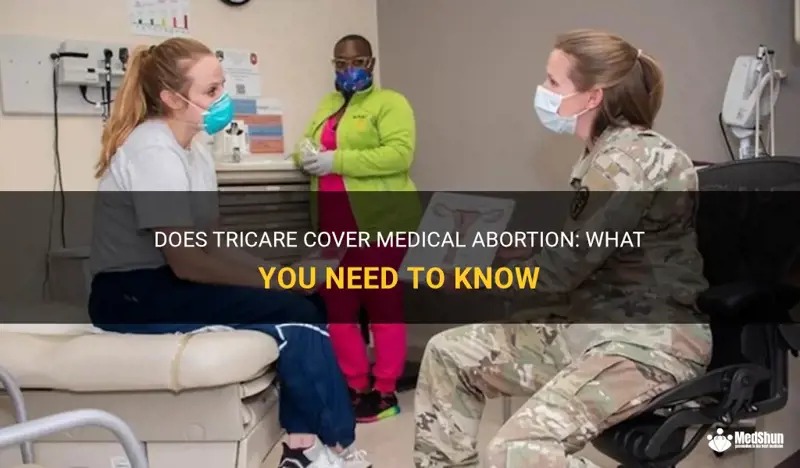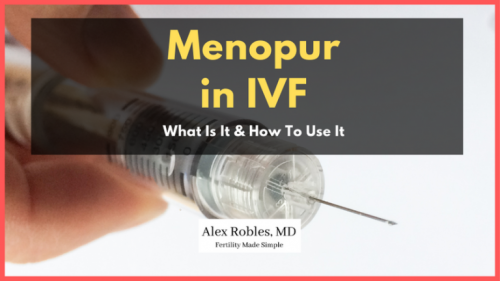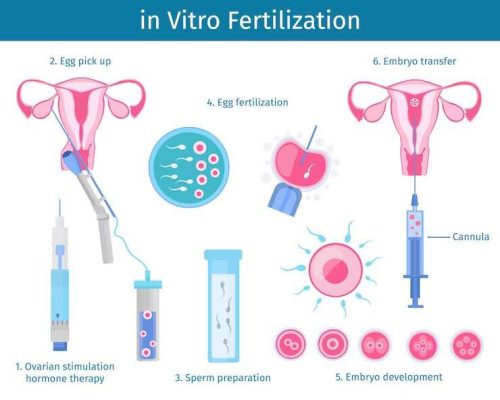Does TRICARE Cover IVF? Your Guide to Fertility Options in the Military
Navigating fertility challenges can feel overwhelming, especially when you’re part of the military community. If you’re a service member, retiree, or dependent covered by TRICARE, you might be wondering: Does TRICARE cover in vitro fertilization (IVF)? It’s a big question, and the answer isn’t as simple as a yes or no. IVF is a life-changing option for many families, but military insurance comes with its own rules and limits. Don’t worry—I’m here to break it all down for you in a way that’s easy to understand, with practical tips, real-world insights, and the latest updates as of April 2025.
Let’s dive into what TRICARE offers, who qualifies, and how you can make the most of your benefits—or find other paths if coverage falls short. Whether you’re dreaming of starting a family or just exploring your options, this guide has you covered.
What Is IVF, and Why Does It Matter to Military Families?
In vitro fertilization, or IVF, is a fertility treatment where doctors combine an egg and sperm in a lab to create an embryo, then place it in the uterus to grow into a baby. It’s one of the most effective ways to overcome infertility, which affects about 15% of couples in the U.S. For military families, infertility can hit harder—studies show service members face higher rates due to stress, deployments, or exposure to hazards like toxins or injuries.
Why does this matter? Building a family is a deeply personal goal, and for those who serve, it’s often tied to the sacrifices they’ve already made. But IVF isn’t cheap. A single cycle can cost $15,000 or more, and many families need multiple tries. That’s where TRICARE comes in—or doesn’t. Understanding your coverage can save you thousands or help you plan smarter.

TRICARE’s Basic Stance on IVF Coverage
Here’s the short version: TRICARE doesn’t cover IVF for most people. It’s considered an “elective” procedure under standard plans like TRICARE Prime or Select, meaning it’s not a guaranteed benefit for everyone. But there’s a catch—some service members can get IVF covered under specific conditions. Let’s unpack this.
TRICARE is the military’s health insurance program, serving over 9 million active-duty members, retirees, and their families. It’s designed to keep you healthy and mission-ready, covering things like doctor visits, surgeries, and emergencies. Fertility treatments, though? They’re trickier. TRICARE focuses on “medically necessary” care, and IVF often falls outside that definition—unless it’s tied to a service-related injury or illness.
So, who gets coverage, and who doesn’t? It all depends on your situation.
Who Qualifies for IVF Under TRICARE?
TRICARE does offer IVF in rare cases, but the rules are strict. Here’s what you need to know:
Active-Duty Service Members with Serious Injuries
If you’re an active-duty service member (male or female) and you’ve suffered a “serious or severe illness or injury” while on duty that caused infertility, TRICARE may step in. This could include:
- Combat injuries (like blast trauma affecting reproductive organs).
- Toxic exposure (think burn pits or chemicals linked to fertility issues).
- Severe illnesses requiring treatments (like chemotherapy) that damage fertility.
For example, if a soldier loses the ability to conceive naturally due to an IED explosion, TRICARE could cover IVF. You’d need a doctor’s diagnosis linking the infertility to your service, plus preauthorization for each cycle.
What’s Covered in These Cases?
- Egg or sperm retrieval.
- Fertilization in a lab.
- Embryo transfer to the uterus.
- Even cryopreservation (freezing eggs, sperm, or embryos) if you’re facing deployment or treatment that risks fertility.
What’s Not Covered?
- IVF for spouses or dependents unless the service member’s injury directly caused their infertility.
- Donor eggs, sperm, or surrogacy costs (though this is evolving—more on that later).
- Routine infertility not tied to service (like age-related issues or unexplained infertility).
Real-Life Example
Take Sarah, an Army captain injured by shrapnel in Afghanistan. The damage to her ovaries left her infertile. After medical review, TRICARE approved three IVF cycles at Walter Reed Medical Center. She paid almost nothing out of pocket—a huge win compared to civilian costs.
Where Can You Get IVF Through TRICARE?
If you qualify, TRICARE prefers you use military treatment facilities (MTFs). These are top-notch hospitals with fertility programs, and the care is often cheaper than civilian clinics. Here’s a quick list of MTFs offering IVF as of 2025:
- Walter Reed National Military Medical Center (Bethesda, MD)
- Tripler Army Medical Center (Honolulu, HI)
- Madigan Army Medical Center (Tacoma, WA)
- Naval Medical Center San Diego (San Diego, CA)
- Womack Army Medical Center (Fort Bragg, NC)
Pro Tip: Slots are limited, and waitlists can stretch months. Call ahead to check availability, and ask your primary care manager (PCM) for a referral.
If an MTF isn’t an option, TRICARE may cover care at a network civilian provider—but only with preapproval. Out-of-network care? You’re likely on your own.
What About Retirees, Dependents, and Veterans?
This is where it gets tough. If you’re a retiree or dependent, TRICARE won’t cover IVF unless it’s tied to an active-duty injury. For veterans, the Department of Veterans Affairs (VA) has its own rules. Since 2024, the VA expanded IVF access for veterans with service-connected infertility, even if they’re unmarried or need donor eggs/sperm. TRICARE hasn’t caught up yet.
For example, if you’re a military spouse with endometriosis, TRICARE might cover diagnostic tests (like ultrasounds or hormone checks), but IVF? You’d pay out of pocket. It’s a gap that frustrates many families.
Costs Without Coverage: What to Expect
If TRICARE won’t cover IVF, you’re looking at civilian prices. Here’s a breakdown:
| Service | Average Cost (2025) |
|---|---|
| IVF Cycle (one attempt) | $15,000 – $20,000 |
| Medications | $3,000 – $5,000 |
| Egg/Sperm Donation | $5,000 – $15,000 |
| Surrogacy | $50,000 – $100,000+ |
| Freezing Eggs/Embryos | $1,000/year |
At MTFs, costs drop to around $5,000 per cycle for eligible patients—a steal compared to private clinics. But without coverage, these numbers add up fast.
Why Doesn’t TRICARE Cover IVF for Everyone?
You might be thinking, “Why not? Civilian plans often cover IVF!” It’s a fair question. About 47% of large employers offered IVF benefits in 2021, and 20 states mandate some infertility coverage. Even federal employees get IVF through the FEHB program—up to $25,000 annually in some 2025 plans.
TRICARE’s reasoning boils down to:
- Budget Limits: Expanding IVF to all beneficiaries could cost billions, straining military healthcare funds.
- Mission Focus: TRICARE prioritizes readiness and acute care over elective treatments.
- Policy Lag: Lawmakers haven’t fully updated TRICARE to match civilian trends.
But change is brewing. Advocates argue that better fertility benefits could boost recruitment and retention—77% of employees say they’d stay with a job offering fertility support. With military staffing shortages in 2025, this could be a game-changer.
New Developments in 2025: Hope on the Horizon
Good news! IVF coverage is a hot topic right now. Here’s what’s happening as of April 2025:
Legislative Push
Sen. Tammy Duckworth and Rep. Sara Jacobs introduced the IVF for Military Families Act in early 2025. If passed, it would:
- Expand TRICARE IVF coverage to all active-duty members and spouses, not just those injured.
- Match federal employee benefits (like FEHB’s IVF perks).
- Reduce out-of-pocket costs without extra service commitments.
It’s still in Congress, but 80% of voters support IVF for military families, per a 2024 poll. Pressure’s on!
DoD Policy Updates
In March 2024, the Department of Defense (DoD) loosened IVF rules for active-duty members. Unmarried troops and those needing donor eggs/sperm can now qualify if their infertility is service-related. TRICARE hasn’t fully adopted this yet, but it’s a sign of progress.
VA Influence
The VA’s 2024 IVF expansion for veterans could nudge TRICARE to follow suit. If veterans get broader access, why not active-duty families?
What This Means for You: Stay tuned. If the Act passes, 2026 could bring big changes. For now, check TRICARE’s website or call 1-800-TRICARE for updates.
Interactive Quiz: Do You Qualify for TRICARE IVF?
Wondering if you might be eligible? Take this quick quiz:
- Are you an active-duty service member?
- ✔️ Yes
- ❌ No
- Did you suffer a serious injury or illness on duty?
- ✔️ Yes
- ❌ No
- Has a doctor linked your infertility to that event?
- ✔️ Yes
- ❌ No
Results:
- All ✔️: You might qualify! Talk to your PCM.
- Any ❌: Standard TRICARE won’t cover IVF, but keep reading for options.
Alternatives If TRICARE Won’t Cover IVF
Don’t lose hope if TRICARE says no. Here are practical ways to make IVF work:
Military Discounts
Some clinics offer 10-25% off for military families. California IVF Fertility Center, for example, slashes IVF costs to around $10,000 for TRICARE patients—half the civilian rate. Call local clinics and ask!
Financing Plans
- Fertility Loans: Companies like CapexMD offer low-interest loans for IVF.
- Payment Plans: Many clinics let you pay in installments.
- Grants: Groups like Baby Quest Foundation award $5,000-$15,000 to military families.
VA Benefits
If you’re a veteran with a service-connected disability, the VA might cover IVF—even if TRICARE won’t. Contact your VA benefits coordinator.
Crowdfunding
Sites like GoFundMe have helped military families raise thousands for IVF. Share your story—it’s more common than you think.

Three Under-the-Radar Challenges Military Families Face
Most articles skip these, but they’re critical:
1. Deployment Delays
Frequent moves and deployments can derail IVF timing. Ovarian stimulation needs daily shots and monitoring—tough if you’re PCSing to Germany or your spouse is at sea.
Fix: Ask your clinic about “batch cycles,” where multiple patients start treatment together, syncing with your schedule.
2. Emotional Toll
Military life already brings stress—add infertility, and it’s a double whammy. A 2023 study found 42% of active-duty families reported fertility struggles worsened by service demands.
Fix: Seek free counseling through Military OneSource or TRICARE-covered therapists.
3. Toxic Exposure Risks
Burn pits, PFAS chemicals, and radiation are linked to infertility, yet TRICARE rarely covers IVF unless damage is “severe.” A 2024 DoD report estimated 1 in 5 service members face fertility risks from exposures.
Fix: Document exposures with your doctor—future claims could expand coverage.
Step-by-Step: How to Maximize TRICARE Fertility Benefits
Even without IVF, TRICARE covers some fertility steps. Here’s how to use them:
- Get a Referral: Visit your PCM to discuss infertility. They’ll refer you to a specialist.
- Diagnostic Testing: TRICARE covers blood tests, ultrasounds, and semen analysis to pinpoint the issue.
- Treatment Options: Ask about covered treatments like:
- Hormone therapy (e.g., Clomid for ovulation).
- Surgery (e.g., fixing blocked tubes).
- Appeal if Denied: If TRICARE rejects a claim, file an appeal with medical evidence.
- Explore MTFs: Even if IVF isn’t covered, MTFs offer discounted IUI (intrauterine insemination).
Case Study: Mike, a Navy sailor, and his wife used TRICARE to diagnose her PCOS. Surgery corrected it, and they conceived naturally—saving $20,000 on IVF.
Poll: What’s Your Biggest Fertility Concern?
Let’s hear from you! Vote below:
- A) Cost of treatment
- B) Finding a provider
- C) Timing with military life
- D) Emotional stress
Drop your pick in the comments—I’ll tally the results next month!
The Future of IVF for Military Families
Looking ahead, the push for broader IVF coverage is gaining steam. The IVF for Military Families Act could level the playing field, but it’s not law yet. Meanwhile, small wins—like the DoD’s 2024 policy tweak—show the military’s starting to listen.
What’s my take? TRICARE’s strict rules make sense for budget hawks, but they’re out of step with modern family needs. Service members deserve benefits that match their sacrifices. If 14 FEHB plans cover IVF for federal workers, why not TRICARE for troops?
Final Thoughts: Your Next Steps
So, does TRICARE cover IVF? For most, no—but if you’re an injured active-duty member, it’s a yes with the right paperwork. Either way, you’ve got options. Start with your PCM, explore discounts, and watch for 2025 policy shifts. Building your family might take extra effort in the military, but it’s worth it.
Have questions? Drop them below—I’m here to help. And if you’ve been through this, share your story. You’re not alone in this journey.




